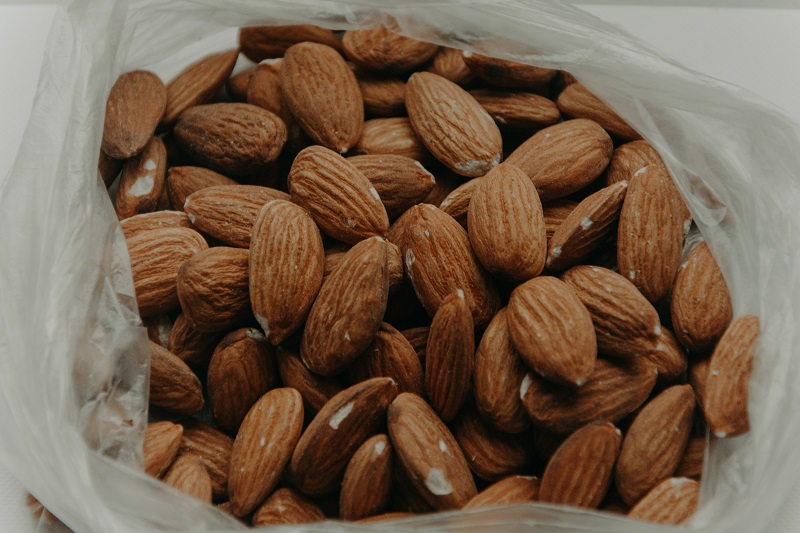Sounding Off On GMOs: The Arctic Apple Decision
The USDA-Animal and Plant Health Inspection Service recently deregulated two genetically modified apple varieties, Arctic Granny and Arctic Golden, finding they are not likely to have a significant impact on the human environment.
We polled members of our American/Western Fruit Grower Editorial Advisory Board, as well as a few other industry leaders/experts, to see how they felt about it. We asked these questions:
1) Are you in favor of genetically modified fruit? Why or why not?
2) Going forward, what are the ramifications of this decision?
Some of the responses had to be edited because of space considerations.
 Roger Pepperl, Marketing Director, Stemilt Growers, Washington
Roger Pepperl, Marketing Director, Stemilt Growers, Washington
We are not in favor of GM fruit as we have plenty of great pieces of fruit that are meeting customer’s needs and desires. Customers have spoken on numerous polls that they do not want us to engage in GMO fruit.
We are worried that customer fears will have a negative impact on our crops and we will need to defend our crops because of others. Consumption will slow up based on lack of trust. We also fear that 3rd party certifiers will become the next fee for us to have to pay to prove what we have never done, grow GMO crops.
David Doll, University of California Cooperative Extension Pomologist
 Yes and no. Yes — as it may help us manage diseases and pests that reduce productivity. No if it impacts trade, profitability of operations, or increases pesticide usage. Personally, I have no issue with consuming GMO fruit.
Yes and no. Yes — as it may help us manage diseases and pests that reduce productivity. No if it impacts trade, profitability of operations, or increases pesticide usage. Personally, I have no issue with consuming GMO fruit.
If successful in creating a market — which includes exporting to the EU — I am sure other commodities will look to develop resistant rootstocks, varieties.
Jim Allen, President, New York Apple Association
 I am not in support of the Artic Apple. I personally do not feel that turning off the browning gene is worth disrupting the apple category by introducing the first GMO. I truly believe the apple is safe and offers no risk to the environment.
I am not in support of the Artic Apple. I personally do not feel that turning off the browning gene is worth disrupting the apple category by introducing the first GMO. I truly believe the apple is safe and offers no risk to the environment.
We no longer can say we are GMO-free. Public perception will be negative, which will be fueled by scare media such as Dr. Oz, who will paint the entire industry with one tainted GMO brush. Consumers may judge all apples differently and I am concerned about how exporting markets could be affected. Case in point: Recently Listeria was found on only two varieties of apples from one small source in California, yet we had New York apples of other varieties embargoed in foreign markets because of the fear of Listeria. Countries that have banned GMOs may now look at the U.S. and say no to the 99.99% of the U.S. crop which is non-GMO!
In my opinion, planting just one GMO tree could cost over $5 per tree, and that is only the wood, not to mention the growing system — post and wire, cost of land, labor and irrigation — and today at 1,250-1,900 trees per acre, the investment is huge. Unlike planting an acre of GMO soybeans, apple growers are making a long-term investment, and spending this money on a highly controversial and criticized GMO apple would be an unbelievable gamble and risk.
Desmond O’Rourke, Publisher, World Apple Report, Washington
Colleagues at WSU have been using genetic engineering techniques since the early 1970s. Instead of random crossing of parent stock, G.E. allows the transfer of specific, desirable genes. Accordingly, I am i favor of the use of genetic engineering in plants, animals, and humans. G.E. has enabled many breakthroughs in human and animal medicine, and has revolutionized products like corn and soybeans. The techniques could solve many of the problems that are so destructive to agriculture, such as citrus greening in oranges, bacteria in kiwifruit, cankers in tree crops, and help reduce current over-dependence on chemicals to mitigate these problems. It is unfortunate that opponents have ignored sound science and risk analysis and caused unnecessary alarm about G.E. techniques.
favor of the use of genetic engineering in plants, animals, and humans. G.E. has enabled many breakthroughs in human and animal medicine, and has revolutionized products like corn and soybeans. The techniques could solve many of the problems that are so destructive to agriculture, such as citrus greening in oranges, bacteria in kiwifruit, cankers in tree crops, and help reduce current over-dependence on chemicals to mitigate these problems. It is unfortunate that opponents have ignored sound science and risk analysis and caused unnecessary alarm about G.E. techniques.
While its application in Arctic apples is a minor advance, it was really critical that USDA found the science acceptable, as it has for Simplot’s Innate potato. That means scientists in both the public and private sectors can have more confidence in using genetic engineering to solve current and potential problems in fruit production. It also opens the door for solving many problems affecting produce supplies in developing countries where the needs are more critical.
For Arctic apples to be successful, Okanagan Specialty Fruits will have to overcome organized opposition at many levels. It will be an outstanding marketing feat if they can pull it off. Food irradiation faced the same problem of polluted public opinion, and only became mildly acceptable when the dangers of E. coli became widely known. Unfortunately, it may take some similar calamity in the produce industry to alter the attitudes of many towards genetic engineering.
Dave Rosenberger, Cornell Professor Emeritus, New York
 Genetically modified foods, at least GMOs that do not include DNA from other organisms, will eventually be broadly accepted because they offer so many advantages over conventional breeding. Those who are totally opposed to GMOs are, in my opinion, very similar to those who were convinced that motorized vehicles should not be allowed to displace horses.
Genetically modified foods, at least GMOs that do not include DNA from other organisms, will eventually be broadly accepted because they offer so many advantages over conventional breeding. Those who are totally opposed to GMOs are, in my opinion, very similar to those who were convinced that motorized vehicles should not be allowed to displace horses.
Motorized vehicles have certainly brought with them a host of human health and environmental issues, but I doubt that there are any GMO-phobes willing to live without any of the advantages that we gain from using cars. Instead, we have learned to live with motorized vehicles by regulating their manufacture and use. However, I doubt that Arctic Apples will have the revolutionary impact of the Model-T Ford.
Kevin Moffitt, President & CEO, Pear Bureau Northwest
As a marketer, I would prefer that the pear industry did not venture into genetically modified pears. The main reason  is consumer acceptance. There is a lot of confusion and misunderstanding about GM foods and there are some very vocal anti-GMO groups.
is consumer acceptance. There is a lot of confusion and misunderstanding about GM foods and there are some very vocal anti-GMO groups.
Once a product is introduced it could cause problems for all of the other non-GM pears, possibly hurting consumption and sales. Likewise, there are some strong views against GMO in markets outside the U.S. The pear industry in the Northwest exports nearly 40% of the fresh crop so taking a hit on that front could be detrimental to the growers as well.
It will still be a few years before consumers see these apples on the retail shelves. However, there are already processors and food service companies distancing themselves from these apples. There are plenty of consumers who would not be opposed to these apples but the vocal majority will keep many farmers and processors leery.
Barry Bedwell, President, California Fresh Fruit Association
 I have attempted to communicate the feelings of the majority of the board members — but to clarify, our association has not taken any official position.
I have attempted to communicate the feelings of the majority of the board members — but to clarify, our association has not taken any official position.
We see genetically modified fruit as a valuable tool that could be used to combat destructive plant diseases in the future. GMOs hold promise in fighting such viruses as Pierce’s Disease or plum pox. We also see that the arguments against GMOs are mostly emotional and without scientific foundation. Additionally, it is ironic to note that many of the same people that support the scientific basis for climate change are the same people opposed to GMOs and ignore the fact the overwhelming percentage of scientists believe that GMOs are not a threat to human or environmental health.
Our hope would be that consumers begin to view GMOs in a different, more positive light. However, the battle for the hearts and minds of consumers in regard to this issue is still in the early stages and a definitive outcome is far from clear.
Hannah Burrack, North Carolina St. University Extension Entomologist
I think GMOs, in general, need to be handled on a case by case basis. If the benefit (such as reduced pesticide use, essential disease resistance, or in the case of the two apple varieties, a reduction in food waste) outweighs potential costs or risks, then GMOs should be considered like other crop production tools. We sometimes forget that all our management tools come with potential risks. We are often just more used to the risks posed by tools like pesticides.
waste) outweighs potential costs or risks, then GMOs should be considered like other crop production tools. We sometimes forget that all our management tools come with potential risks. We are often just more used to the risks posed by tools like pesticides.
The regulatory and public acceptance ramifications of this decision are most interesting. The risks involved with these products is low — apples are not propagated from seeds and the varieties being approved were created through gene silencing rather than adding genes from other plants/apples/organisms. Therefore, I don’t anticipate significant environmental ramifications.
The approval of a GMO crop to address essentially cosmetic concerns is precedent setting. Perhaps the biggest benefit is from a reduction in food waste — consumers being more willing to eat “fresher” looking apples. It would be ideal if consumers would accept cosmetically imperfect fruit, but that seems hard to teach. However, the initial consumer perception of these apples seems to be that the they are unnecessary. If there’s no demand, it’s unlikely they will be grown.
Jim McFerson, Manager, Washington Tree Fruit Research Commission
 Breeding programs can deliver superior new cultivars more efficiently, accurately, creatively, and rapidly by employing biotechnology, including the genetic engineering approach used in the Arctic Apples.
Breeding programs can deliver superior new cultivars more efficiently, accurately, creatively, and rapidly by employing biotechnology, including the genetic engineering approach used in the Arctic Apples.
However, these technologies are expensive, require substantial technical skill, and may not be acceptable to certain markets, so the traits to be improved require careful consideration of the value they might add all along the supply chain, from producer to consumer. GMO technology is invaluable for genetic discovery and biological validation, but has significant limitations in cultivar development, since it typically only addresses a single trait at a time.
In contrast, other technologies, including conventional breeding and genomics, can deliver cultivars improved for a range of traits. In the case of Arctic Apples, I believe the non-browning trait inserted into Granny Smith and Golden Delicious cultivars adds little value to any portion of the supply chain.
This decision to deregulate these apple cultivars forces a discussion of the relative cost/benefit of creating and marketing a GMO crop consumed as a whole, fresh product. This is particularly relevant for the apple, with its wholesome, nutritious, iconic status. Such a discussion among researchers, producers, handlers, marketers and consumers will likely be fragmented and even fractious, and probably lead to no consensus, but any public discussion that highlights the benefits of plant breeding is a very good thing. ●









